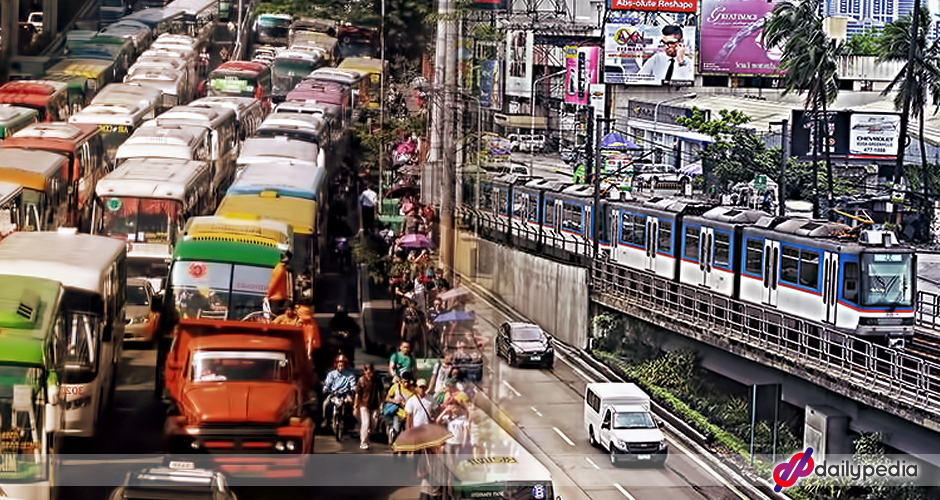
Photo from Dailypedia
In the Philippines, whenever Filipinos earn enough money, one of their primary investments is buying a car to avoid the hassle of commuting.
Metro Manila is as crammed as it can be as of the moment. Major buses and jeepneys rule the major highways, while tricycles dominate the inner roads.
Despite the nation’s traffic dilemma, people still go out of their way to get that new car, a symbol of their improved status in life.
This is the mindset of a vast majority of Filipinos: owning a car is what will alleviate them from the drudgery of public transport. Jeepneys and buses are for the poor, cars are for the rich. Cries of “I no longer want to commute!” can only be resolved by buying a brand new vehicle. This has to stop.
For Department of Transportation (DoTr) Secretary Arthur P. Tugade, public transportation is and should be an equalizer. Secretary Tugade envisions a public transport system availed of all socio-economic classes simply because it is affordably and the most effective and efficient means to get to where one wants to go. The attitude of not wanting to commute is a mentality that the Secretary is trying to remove, regardless of one’s status.
That is why the DoTr and its attached agencies are working at triple speed to fix our public transport systems to give safety, security, and comfort to the Filipino people.
Under the Duterte administration, we are building and modernizing airports, seaports, landports, and railway systems, and modernizing our PUV.
We are also pushing for the legislation of a 30-year transport roadmap for the country, a blueprint for the next administrations to aid and guide them in building a better public transport system.
Seeing Secretary Tugade fight for this vision for our countrymen will leave you in awe. Yes, he is my boss, and yes, by the virtues of my job, I am required to follow his directives. But it goes beyond that, because I believe in him. I trust the man. That is why he is tagged as “Action Man.” His leadership style enables results that are properly cascaded to every official and employee under the DoTr.
People may think he is walking on clouds with this vision, but I tell you, with political will and a culture of transparency and honesty, this dream can become a reality.
I have high hopes for our public transport and our traffic situation to improve, as I continue to see the cooperation among government agencies in charge of road transport that may not have been very evident in past administrations.
Department of Public Works and Highways Secretary Mark Villar, Department of the Interior and Local Government Secretary Eduardo Año, Metropolitan Manila Development Authority Chairman Danny Lim, and heads of Local Government Units have been working tirelessly alongside the DoTr since the beginning. They stand together against adversity, fighting for the comfort of the Filipino people. Their teamwork sets the difference.
Secretary Tugade believes that a basket of solutions is necessary to solve traffic congestion. While the government does its job, people should understand that we can only do so much.
The public has to play its role by being responsible citizens, promoting discipline among each other while giving the government its unwavering support. Doubts and unfounded criticisms will only push us back further instead of moving forward.
For those who are sleeping on the government, I believe it is time to wake up, as Secretary Tugade’s dream for the country’s public transport system is now turning into a reality. I am honored to have my eyes wide open to see his vision come into life.
In a few years, commuting will be a way of life. A synergy of people of different backgrounds, riding to their desired destinations together under one public transport vehicle. Now that is an equalizer.
Source and Original Article:>>> The Daily Tribune

Comments